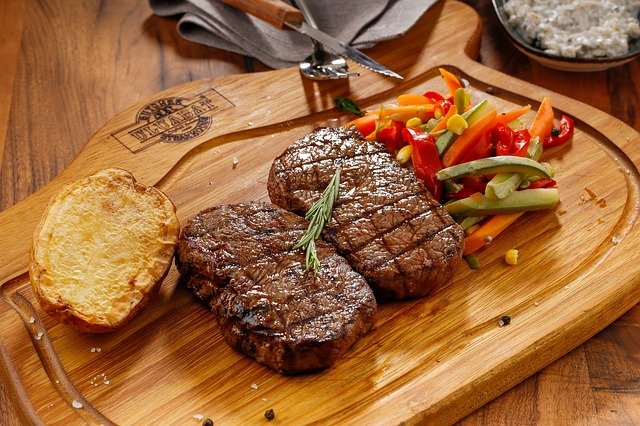Although many people choose to lead a vegan or vegetarian diet, others may not be giving up meat entirely. However, interested in living more sustainably, they’re turning to a dietary trend known as green eating. This dietary plan is focused on living sustainably by keeping foods as natural and local as possible. It also includes having limited meat or sustainable meat intake.

A large part of green eating focuses on meat consumption. Although following a plant-based diet has multiple benefits, people aren’t typically giving up their meat intake entirely. They may be going meat-free a few times a week. The meats that they do eat are sustainable meats. This may be challenging to understand if you’re not familiar with the concept. However, by learning more about green eating, you can often improve your diet and also your health.
Why Focus on Meat?
You may be wondering why a green eating plan focuses on limiting meat and also making sure to have ethical meat delivery. There are a few reasons why meat can be negative for the environment. Some of these reasons may be new to you. Consider the following points:
- Raising Meat Requires Water
Animals consume plants and water so they take up more resources than just eating a plant-based diet. Instead of eating wheat, for example, you would feed the wheat to an animal in addition to water, leading to more waste in the process. Throughout their lives, animals also require thousands of gallons of water. Since water shortages are becoming more of a concern, especially in certain parts of the world, a high meat diet also contributes to shortages. Ethical meat delivery may simply mean eating less meat overall.
- Many Animals Produce Methane
Methane gas is created as a byproduct of grass digestion for many animals. Ruminants such as sheep and cows tend to emit a significant amount of methane gas, contributing to greenhouse gas emissions which have a negative effect on the environment. Although you may avoid this by not eating red meat, even farm-raised fish emit methane. Fish farms emit methane as a byproduct due to the excrement and other byproducts in the ponds. Overall, it’s challenging to find a meat source which doesn’t have this negative effect.
- Meat Contributes to Deforestation
Raising animals takes a lot of land, which needs to have the trees removed. Deforestation is a common byproduct of raising animals. Since trees are responsible for absorbing carbon dioxide and producing oxygen, fewer trees has a negative effect on the environment. Sustainable meats are usually ones that don’t take up much land like poultry.
Practicing Ethical Meat Habits
If you’re interested in going for a more green eating plan, then you don’t have to completely change your diet but there are some simple ways that you can reduce your carbon footprint when it comes to diet. Consider using these options to improve your diet plan.
1. Find Local Meats
Visit a local butcher or even consider getting meat from a local farm. Many farmer’s markets sell local meats which are raised in humane environments. Talk to the farmers about their practices and sustainability efforts. Many local farmers, especially on small farms, are interested in green living and follow good practices. By buying from local producers you’ll be getting high quality and fresh meats that are sustainable.
2. Eat Less Meat
Most people find that they eat a fair amount of meat but eating less meat every week can provide multiple benefits. Not only is this consistent with a green eating plan, you may find that it has improvements for your health and even your wallet. Consider going meat-free a few times a week and watching your portion sizes. Since the portion size for meat is about the size of a deck of cards, most of us are eating more than that.
3. Reduce Food Waste
Thousands of pounds of food are wasted every year and meat can be easy to waste. After all, if it’s not cooked or stored properly, then it’s probably going to be discarded. Try to be more environmentally friendly by only buying what you know you’ll use and make sure to save and use leftovers. Many people get a little more from their meats by using the bones for broth and finding innovative ways to use the entire portion.
When you want to live more sustainably, you certainly can do this with a few simple changes. Most people who want to live a more sustainable lifestyle find that while they may not be interested in going on an extreme diet, finding simple ways to improve their habits is a great option.
